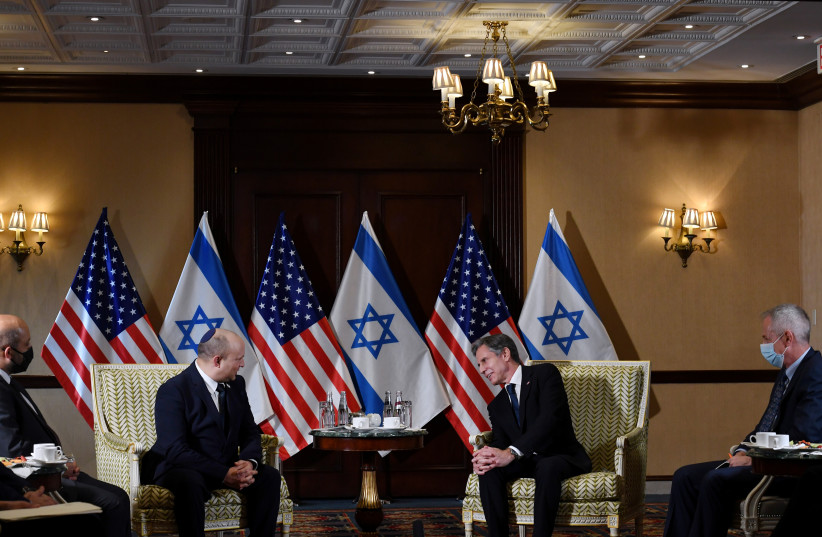WASHINGTON – US Secretary of State Antony Blinken and Prime Minister Naftali Bennett discussed the Visa Waiver Program during their meeting on Wednesday.
The two “agreed on the importance of working toward Israel’s inclusion in the Visa Waiver Program in order to benefit both US citizens and Israeli citizens,” State Department spokesman Ned Price said.
There are currently 40 countries in the Visa Waiver Program.
The visa-waiver issue had gotten stuck in lower-level talks between Israel and the US, a source in Bennett’s entourage in Washington said, adding that it needed a push from a senior official, which it got from Blinken.
“This is a gesture of the US government to the Israeli people,” the source said. “The prime minister brought it up because it is important to him. It is a problem that needs to be solved.”
Ambassador to the US and the UN Gilad Erdan said he was “happy about the significant advances on the way to getting a visa waiver for Israelis going to the US, a move that I led in recent months as ambassador to the US because there is no reason Israeli citizens should have to waste time and money to enter the US.”

The issue of waiving visas for Israelis to visit the US and vice versa has come up repeatedly over decades. But the US never agreed to advance it, partly because Israel rejects many Palestinian-Americans who want to enter the country and partly because the American refusal rate for Israelis applying for a visa is higher than the threshold for a visa waiver.
However, the high refusal rates are due to cultural differences with the US, a senior Israeli diplomatic source said. Most of the Israeli visa requests that are refused come from people in their early 20s who are unemployed and who the US views as being more likely to overstay their visas. But in Israel, these are often people who have just finished their IDF service and are looking to travel for a few months.
In fact, Israelis have one of the lowest visa-overstay rates in the world, at 0.5%, when the maximum for a visa-waiver agreement is 2%.
Regarding the blocking of Palestinian-Americans from entering Israel, the Shin Bet (Israel Security Service) can find a way to resolve that issue if it is standing in the way of a visa-waiver agreement, the source said.
Blinken and Bennett also spoke about several regional issues, including Iran and the Palestinians, Price said.
“The secretary also emphasized that Israelis and Palestinians alike deserve equal measures of freedom, prosperity and dignity, which is important in its own right and as a means to advance prospects for a two-state solution,” the State Department said in a statement.
